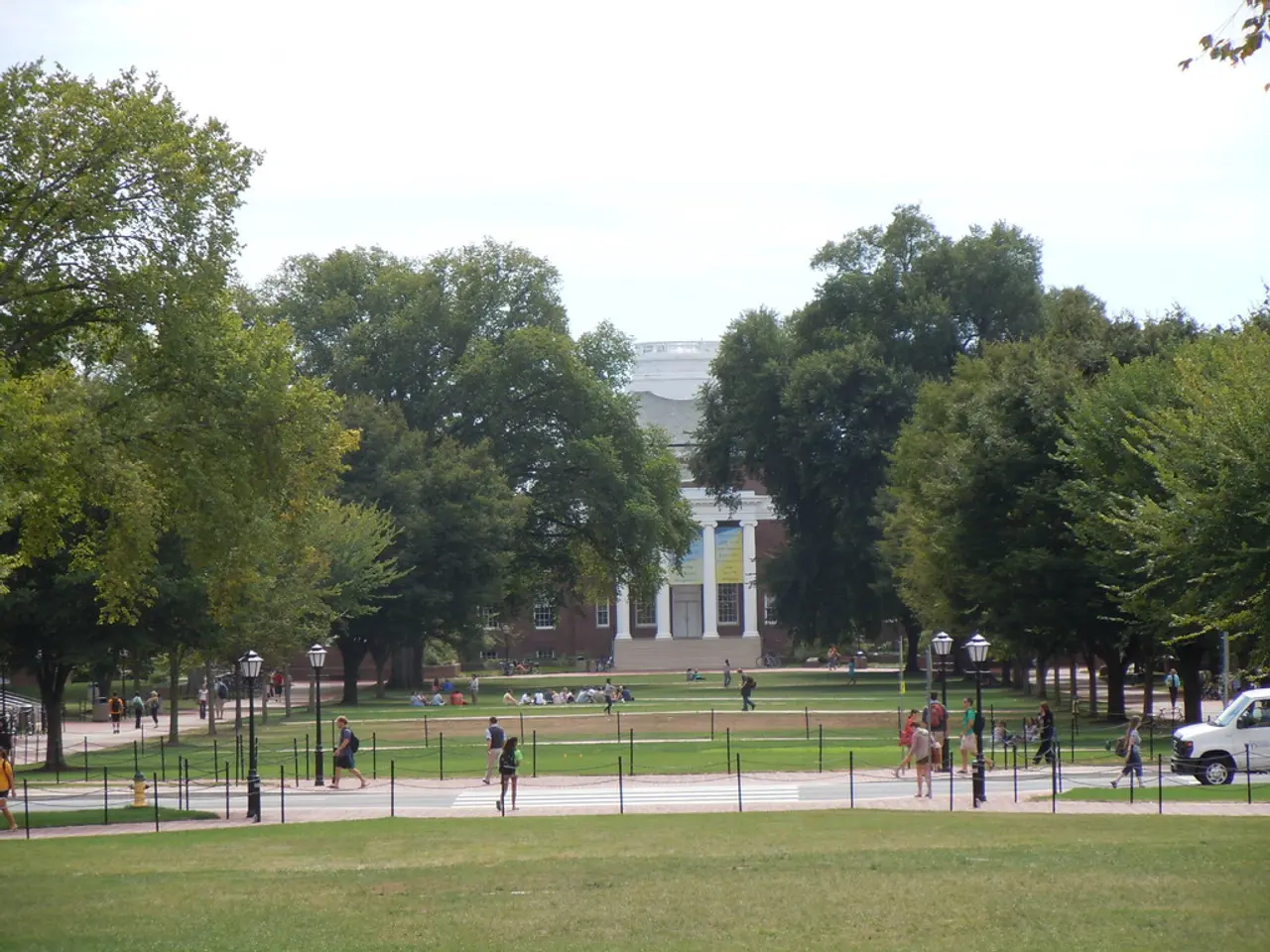Discussions centering on campus monitoring through technology and cybersecurity awareness are the main topics of interest at a conference between Vice-Chancellors and the West Bengal Governor.
The Vice Presidents' Conference, held at Raj Bhavan in Kolkata, saw a gathering of vice chancellors from several universities, aiming to chart a new course for the state's higher education institutions. The decisions made at this conference are part of a larger push to modernize and streamline university functioning in line with national education reforms and growing social needs.
The conference, chaired by West Bengal Governor C V Ananda Bose, focused on a range of issues, including campus security, tribal student welfare, and higher education reforms. One of the key proposals agreed upon for implementation is the establishment of one school for the Scheduled Tribes in every university to assist and support tribal students academically and socially.
In a bid to promote sustainability, developing green campuses, promoting energy efficiency, and exploring the use of non-conventional energy sources were stressed upon. Digital transactions were encouraged across university departments and administration, reflecting the digital age we live in.
To ensure accountability and results, the implementation of these measures will be reviewed periodically. AI-powered surveillance systems, including facial recognition technology, were proposed for implementation across universities in West Bengal to strengthen campus security and address incidents of ragging.
Improving accreditation and assessment systems in both universities and affiliated colleges was another key proposal. A comprehensive audit of manpower, including sanctioned, filled, and vacant posts, was recommended to streamline the administrative structure.
The rollout of the New Education Policy 2020 was also reviewed during the conference. Awareness about the three new criminal laws introduced by the Centre was to be created among university students and staff.
Universities have been asked to introduce dedicated helpline numbers for migrant workers, with coordination mechanisms involving universities in other states to provide reciprocal support. A transparent appointment process for university faculty and staff was emphasized, aiming to ensure fairness and merit in the hiring process.
Lastly, a state-wide awareness campaign against youth drug addiction was proposed, highlighting the importance of mental and physical health in the overall development of students. Additionally, natural farming practices among women were promoted, especially in the three state agricultural universities.
The chairperson of the conference, however, is not explicitly named in the available search results. Despite this, the decisions made at the conference mark a significant step towards modernizing West Bengal's universities and providing a conducive environment for learning and growth.
Read also:
- Changes in manufacturing and consumer habits driven by cosmetic certification processes
- Expanding Bio-based Polypropylene Market to Showcase a Compound Annual Growth Rate (CAGR) of 26.5% till 2034
- victory for Central Java communities in landmark lawsuit against textile conglomerate over pollution issues
- Safety for Young Motorists: Apps Designed to Aid Teenage Drivers and Their Guardians








